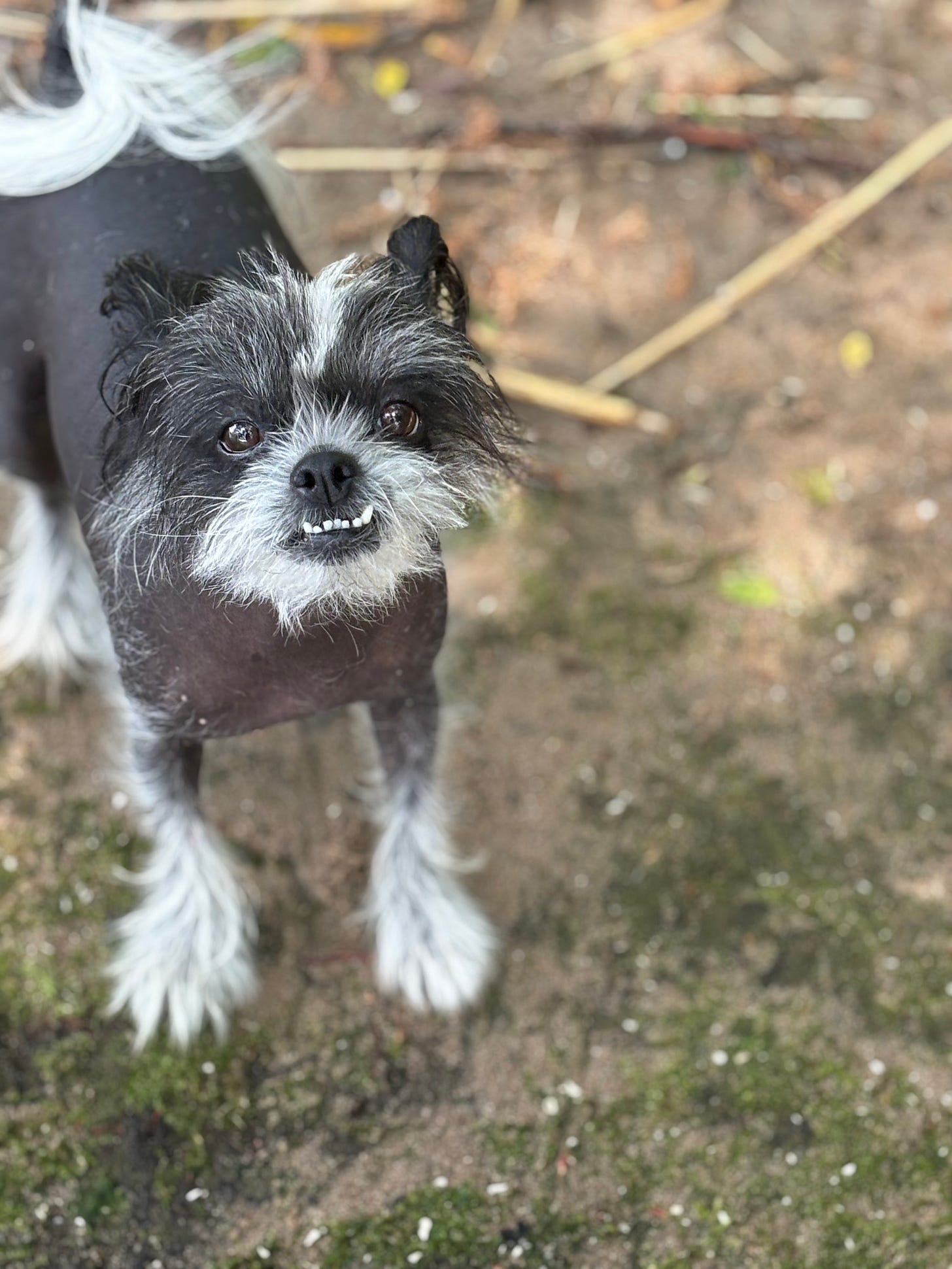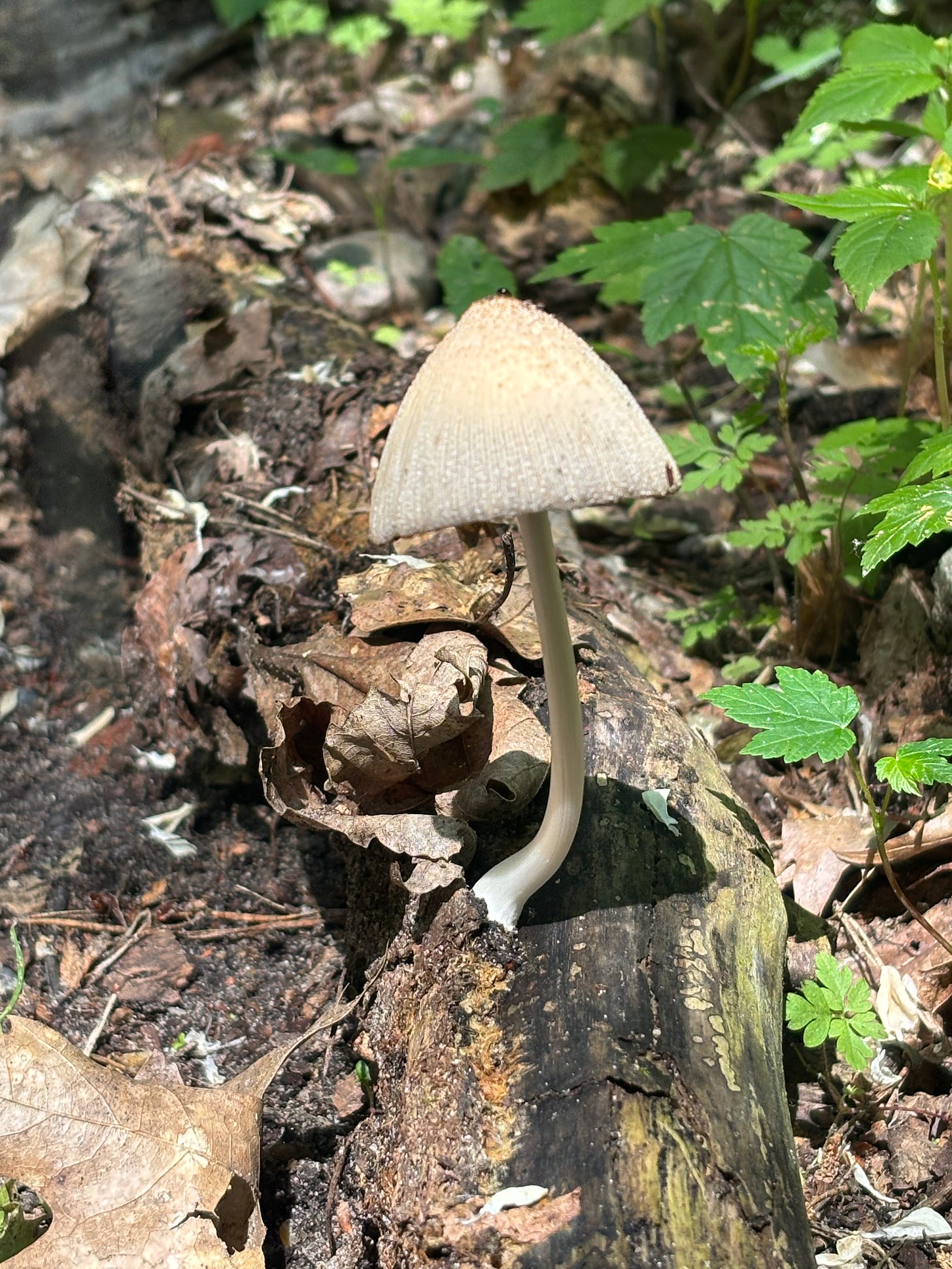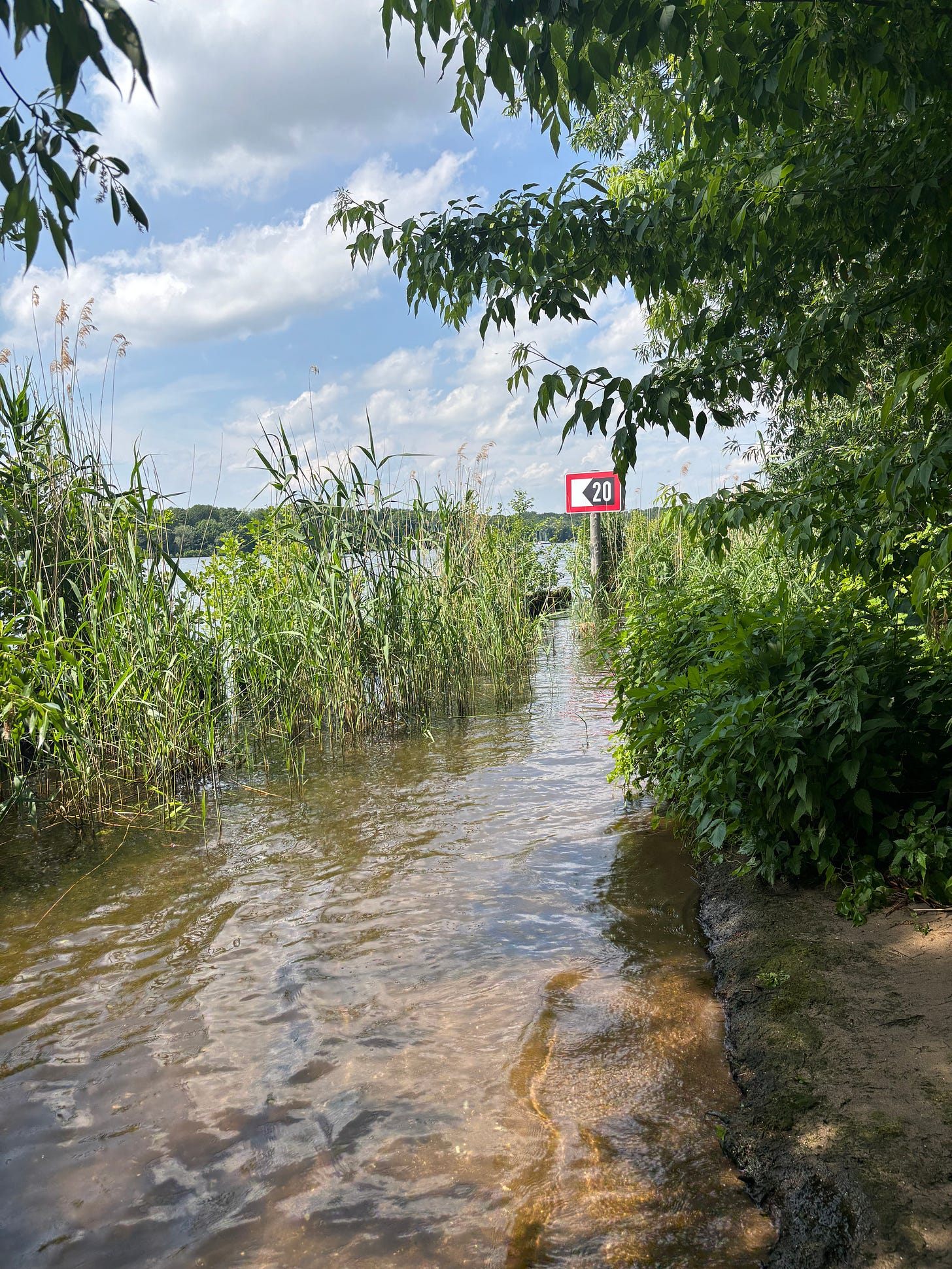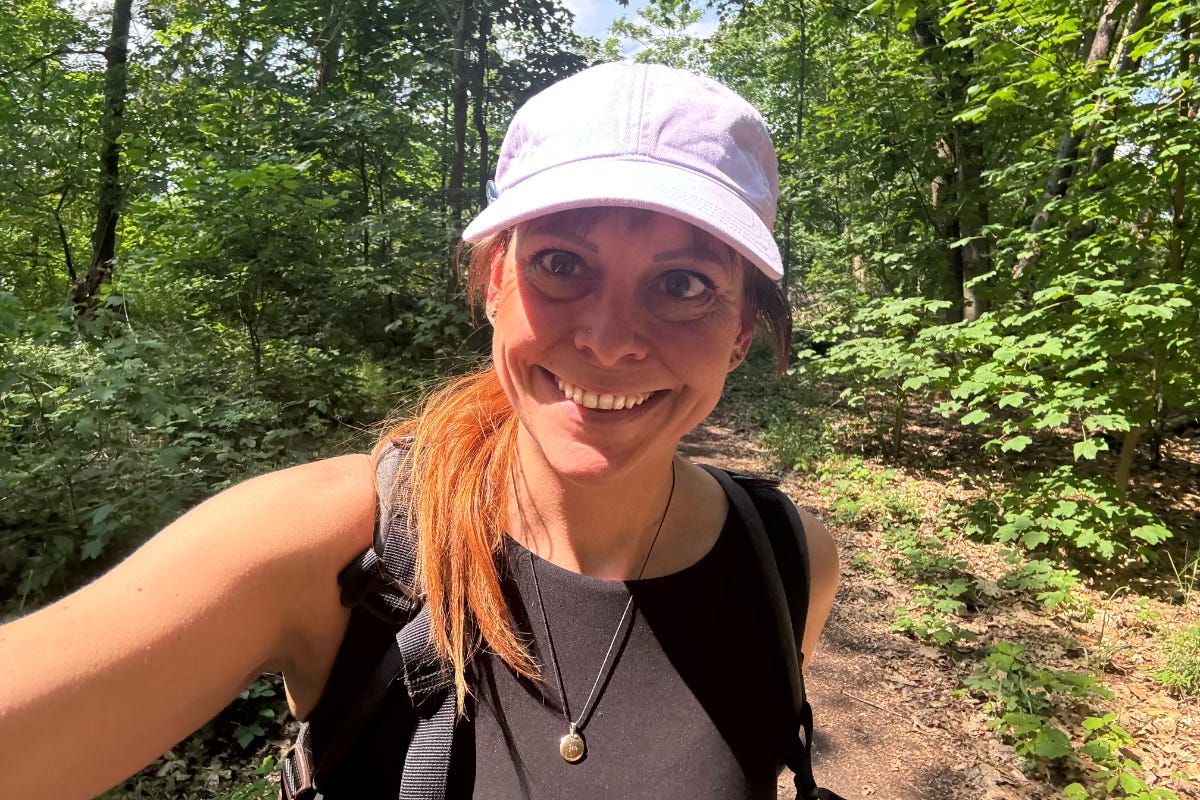Hello and welcome to wild:philosophy.
Work (and live) feel meaningful, when we are able to create and form something that feels deeply personal while at the same time it resonates with others. If you’ve been following along, you’ll know about our experiments with PhilosophyGyms at Grokkist. Last week’s session really started to take form and I truly believe that what we are doing there is meaningful. If that kind of collaborative exploration sounds interesting to you, you are welcome to join.
On another note, I was invited to participate in ’s phenomenal phenomenological conversations. If you are curious what these are, you can see our conversation here.
And last but not least, the wonderful and I have started a series of regular chats, talking about philosophy and organizations. Nate has such a wealth of experience bringing philosophical perspectives into these spaces, and since our EU-funded PhilosophyGym project is just getting started, I'm soaking up so much. Also, we're not just theorizing about the why, how, and what, we're also trying to model the process of philosophy-ing together. Our first exploration, focusing on the why of philosophy in organizations, is available here.
Yesterday, I went for a hike - if you can call it that, given the flatlands of Berlin. I needed to push myself a bit to go on that hike, because for the first time in a long time, this week’s essay wasn’t ready. The essay I have been working on all week just wan’t coming together. It wasn’t even close.
If I orient myself towards doing good - which I do - isn’t writing an essay that potentially helps people in their understanding, thinking or even just amusement, the right thing to do, compared to going for a hike, which serves no one but my dog Erna and I?
The Perils of Effective Altruism
This type of thinking reminded me of Rutger Bregman’s recent book in which he advocates for working in jobs that do good, instead of taking bullshit jobs. I have written before that I find some of his ideas challenging. The underlying philosophy that seems to be informing Bregman is a utilitarian evaluation of the world. It’s a framework that suggests we should always strive to maximize happiness or well-being for the greatest number of people. Every action, every choice, potentially gets weighed on this grand scale of utility. It’s appealing in its apparent simplicity, offering a yardstick for goodness, a way to navigate the moral maze by asking "what does the most good?".
In essence, this is also what effective altruism is about. Effective altruism takes this utilitarian impulse and tries to make it ruthlessly practical. It asks: given my limited resources (time, money, skills), how can I achieve the maximum positive impact on the world, often focusing on quantifiable outcomes and evidence-based interventions? It prioritizes and directs resources where they can, statistically, do the most good, often with a focus on global poverty, animal welfare, or existential risks. It’s utilitarianism urges us to not just feel good about our efforts, but to ensure they are genuinely effective.
The Root Cause of Effective Altruism
Of course when we approach doing good from within a story based on mechanistic thinking, effective altruism feels like the winning strategy. The tell-tale signs of this logic are everywhere: the focus on data, transactions, return on investment. I’ll buy my way to a better world, to a clearer conscience, to heaven.
Obviously, in my hiking dilemma, it wasn’t about whether I should be spending the money (that I spend on public transport) or rather give it to someone in need. But as our language - which is deeply entangled with mechanistic thinking -makes clear. We can spend time and money.
So, for me, it was about time.
Political philosopher John Rawls has the image of a man who enjoys counting blades of grass - an apparently useless pursuit that he loves but really seems to benefit no-one else. In a “good” society, should we let him?
In the same manner, should I let myself go hiking? Is it okay to hike, while the world is burning and while I might turn my talent to more useful things?
As
, recently argued in her excellent piece on “Can’t take it with you” (which greatly informed this essay), ethical egoism theories, which are radically different from effective altruism and related philosophies, say you should benefit yourself foremost. Spinoza, for example, sees us all as finite modes of God or nature, and to be ethically egoist, to go hiking, he’d say, is then expressing a genuine feature of God or nature in all its glorious diversity and beauty. Audre Lorde similarly has said, that as an activist against racism, parts of her identity that bring her joy are really just as important as the activism, including her poetry.After an hour of hiking, contemplating the question whether I should be doing something else with my time, I noticed while my body might be moving forward in a direction (namely Pichelsberg), my mind wasn’t.
At least not, if I remain in my utilitarian analyses.
And damnit, being raised and cultivated in a WEIRD world, it’s so deeply ingrained in my ways of thinking, being and acting, that it constantly creeps in again.
No philosophy-ing will help me solve this dilemma, when in fact, what I am doing is trying to make a calculation. While calculations can inform philosophy-ing, they can’t replace them. In fact, to me, that’s the exact opposite of what philosophy can do.
Just posing this seemingly normal and harmless question suddenly revealed itself as being utterly flawed.
Because it is already full of so many underlying assumptions.
What are these assumptions…
Firstly, that my primary value lies in my output, in what I tangibly produce for others. My being is secondary to my doing.
Secondly, that doing good is an objective, measurable quantity, and that I can reliably compare the goodness-units of writing an essay versus going for a hike.
Thirdly, that my own well-being, my need for rest or unstructured contemplation, is a luxury, or at best, a maintenance activity solely to enable more future doing good.
Fourthly, that there’s a direct, almost transactional, relationship between my effort and the world's improvement. If I don't write this essay now, a quantifiable amount of potential good is irretrievably lost.
And perhaps most insidiously, that I am, or should be, a kind of optimized utility-producing machine, rather than a complex, somewhat messy human being whose needs and expressions are multifaceted and not always reducible to productive ends.
What’s the Alternative?
What then would be better ways of thinking about this….
If you ask this question to yourself (you may try that now), maybe you come up with something similar like:
“So, instead of a calculation, perhaps I can cultivate a more holistic, integrated way of being. The hike isn’t a theft of time from a more useful activity, it is, perhaps, a necessary component of the ecosystem that allows any useful activity to emerge in the first place. I need to recognize that I, too, am part of that world I wish to do good in, and neglecting my own small patch of it - my own well-being, my connection with Erna, my need for walking - ultimately diminishes what I can offer to the whole.”
And maybe, you also see the flaw, that this is still a calculated justification. I need to relax in order to do good.
That way of thinking is so pervasive.
So, eventually I sat down by the water took out my notebook and did some classic brainstorming.
What if the hike IS the essay? Not in the sense that I'll write about the hike (which I now ended up doing), but that the act of walking, of being with Erna, of observing the dull Berlin flatlands, is the point, the full stop, the entirety of the expression that needed to happen in that moment. There's no other product required. The universe, or whatever you want to call it, didn't need an essay from me then, it needed me to walk with my dog. My obsession with producing an essay is just my conditioned mind refusing to accept the simple "is-ness" of that experience. The blades of grass aren't just being counted, they are. I am hiking. Full stop.
What if the dichotomy is an illusion created by language? "Hiking" vs. "Writing." "Good for me" vs. "Good for others." What if these are just convenient but ultimately false boxes we put experiences into?
What if it’s about resonance, not reason? My inner compass wasn't pointing towards the laptop. It was pointing towards Pichelsberg. Maybe my soul, or my gut, or whatever non-rational part of me, knew something my calculating brain didn't. Perhaps it sensed a particular quality of light I needed to see, a specific scent Erna needed to smell, a random thought-fragment that would only emerge in Pichelsberg. Not for any future utility, but for the sheer, in-the-moment correctness of that alignment.
What if there's no better way, only different ways, and I am not the ultimate arbiter of which is needed? Maybe the world didn't need my essay-writing that morning. Maybe it needed my quiet contentment walking with Erna. Or maybe it needed neither. Maybe I am the one who needs to stop believing I have that much control or that much importance in the grand scheme. I am not saying this to abdicate responsibility, but to remind myself to humble myself. My desire to write a "helpful essay" could even be a form of my ego, a need to feel significant, disguised as (effective?) altruism. The hike, in its pointlessness by that metric, might be a more humble, and therefore truer, act.
Any of these pathways, pursued, could become a whole philosophy. I've deliberately left them as questions, though, because while any one of them might hold a shard of truth, countless others likely do too. Of course, a part of me still wishes for that ultimate, pocket-sized answer - the one I could just pull out next time I wonder whether to walk or work, and tada, decision made. But life isn't quite that neat, is it? This constant re-engagement, this willingness to decide (and re-decide) in the face of complexity - not just with my mind, but with my whole PEMSER body (physical, emotional, mental, spiritual, energetic and relational) even if the process itself feels so wonderfully, utterly useless to the pragmatic mind - that, for me, is the heart of living philosophically. Bittersweet unknowingness.
If you like my writing, feel free to click the 🖤 or 🔄 button on this post so more people can discover it 🙏.










Ah, the noble angst of the modern mystic: to hike or to hustle, that is the utilitarian question. But let’s be honest. If walking your dog while the world burns is a sin, then Saint Francis is roasting on a spit.
What if the hike wasn’t a distraction from meaning, but the meaning itself? What if your dog is your guru and Pichelsberg is your pulpit? I suspect the grass didn’t need counting. It needed witnessing. And sometimes the truest prayer is made with muddy shoes and an unproductive afternoon.
Blessed be the wasted time that wasn’t wasted at all.
Virgin Monk Boy
Love 'Resonance not reason'. We have all had the experience of the universal intelligent energy nudging us in a direction our own ego based rationalising could not have led us to, and we can trust it is for a good reason from which ripples will spread 💜